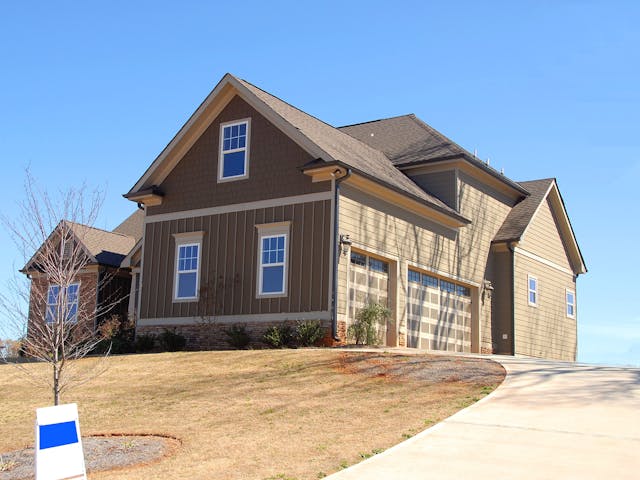As a property manager, ensuring the safety and security of your properties and tenants is a top priority. Implementing effective security practices not only protects your investments but also builds trust with your tenants. Here are some essential security practices that every property manager should follow to keep their properties safe and secure.
1. Implement Comprehensive Surveillance Systems
A robust surveillance system is crucial for property security. Install high-quality security cameras at all entry points, common areas, and parking lots. Ensure the cameras have night vision and are regularly maintained to function correctly at all times.
Integrate the surveillance system with a monitoring service that can alert you to any suspicious activity in real-time. Having a comprehensive surveillance system deters potential criminals and provides valuable evidence in case of any incidents. Make sure to inform tenants about the surveillance system to enhance their sense of security.
2. Strengthen Access Control Measures
Controlling who can access your property is a fundamental security practice. Use modern access control systems like keyless entry, smart locks, or biometric systems. These technologies offer higher security levels compared to traditional locks and keys.

Regularly update access codes and rekey locks if keys are lost or tenants move out. Implement a strict policy for managing spare keys and ensure only authorized personnel have access. Educate your tenants on the importance of keeping entry points secure and reporting lost keys immediately.
3. Conduct Regular Security Audits
Regular security audits are essential to identify and address potential vulnerabilities in your property. Schedule periodic inspections of all security systems, including alarms, locks, lighting, and surveillance cameras. Ensure all safety protocols are being followed consistently.
During these audits, check for any broken windows, faulty locks, or inadequate lighting in common areas and entry points. Address any issues promptly to prevent security breaches. Engaging a professional security consultant for these audits can provide you with expert insights and recommendations.
4. Enhance Outdoor Lighting
Good lighting is a simple but effective security measure. Ensure that all outdoor areas, including parking lots, pathways, and entrances, are well-lit. Motion-sensor lights can be particularly useful as they turn on when someone approaches, deterring potential intruders.
Check the lights regularly to ensure they are working correctly and replace any burnt-out bulbs promptly. Encourage tenants to report any lighting issues immediately. Proper lighting not only enhances security but also makes tenants feel safer when moving around the property at night.
5. Develop an Emergency Response Plan
Having a clear and well-communicated emergency response plan is essential. Create a plan that covers various scenarios such as fires, natural disasters, and security threats. Ensure all tenants and staff are aware of the plan and know what to do in an emergency.
Conduct regular drills to practice the emergency procedures and update the plan as needed. Provide tenants with emergency contact numbers and clearly mark emergency exits and routes. Being prepared for emergencies can save lives and minimize damage to your property.
6. Foster a Sense of Community
Building a strong community among your tenants can enhance security. Encourage tenants to get to know each other and look out for suspicious activity. Organize community events and meetings where tenants can voice their concerns and suggestions about security.
Creating a tenant watch program can also be beneficial. Involve tenants in keeping an eye on the property and reporting any unusual activities. A strong community where tenants feel responsible for each other’s safety can greatly enhance overall security.
7. Install Secure Fencing and Gates
Secure fencing and gates are essential for controlling access to your property. Install high-quality fencing around the perimeter and ensure all entry points have sturdy gates. Automated gates with keypads or card access systems can enhance security by restricting unauthorized entry.

Regularly inspect the fencing and gates for any damage or weaknesses and repair them promptly. Well-maintained fencing and secure gates not only deter intruders but also give tenants peace of mind knowing that the property is well-protected.
8. Provide Tenant Security Education
Educating your tenants about security practices can significantly enhance overall safety. Provide them with information on how to secure their own units, such as locking doors and windows, not sharing access codes, and being vigilant about who they let into the building.
Organize periodic security workshops or send out newsletters with safety tips and updates on any security measures you are implementing. Empowering tenants with knowledge and encouraging them to take an active role in security can create a safer living environment for everyone.
9. Hire Professional Security Services
In some cases, hiring professional security services may be necessary. Security guards can provide a visible presence that deters criminal activity and respond quickly to any incidents. Consider hiring security personnel to patrol the property, especially in larger complexes or high-risk areas.
When selecting a security company, ensure they are reputable and have trained and licensed personnel. Discuss your specific needs and expectations with them to ensure they can provide the appropriate level of security for your property.
